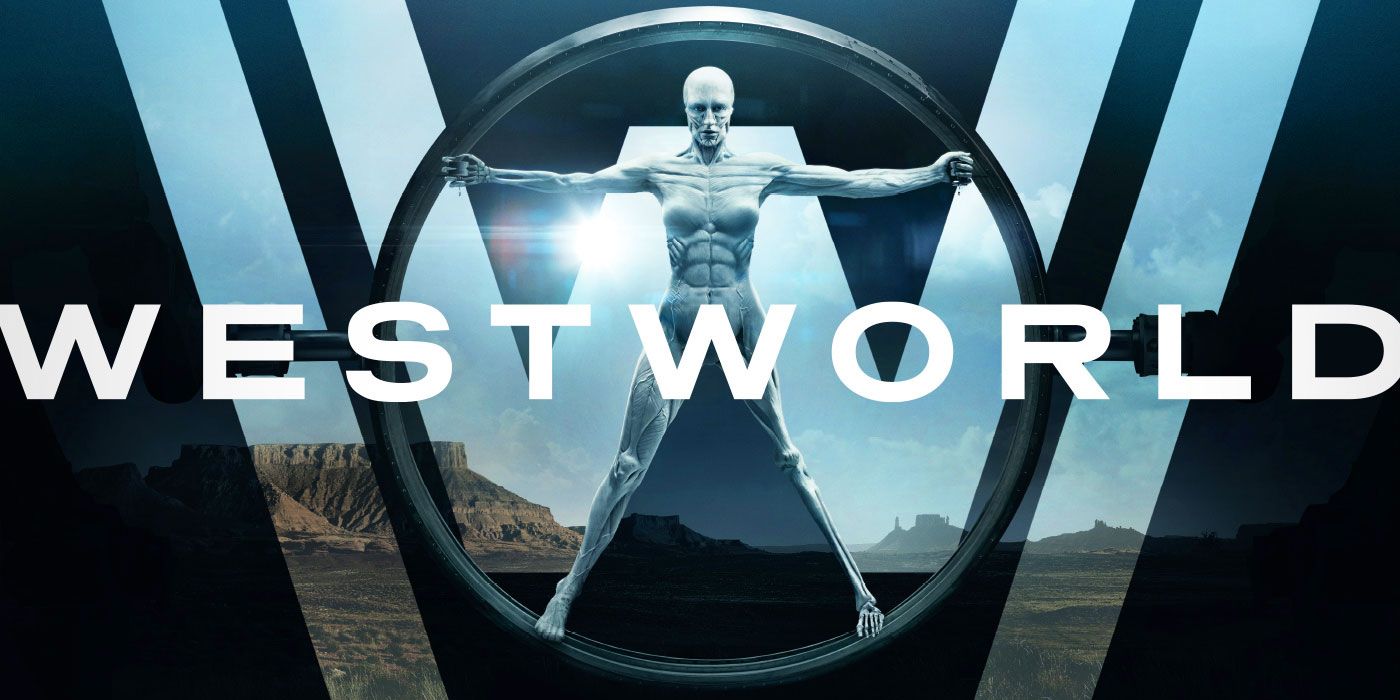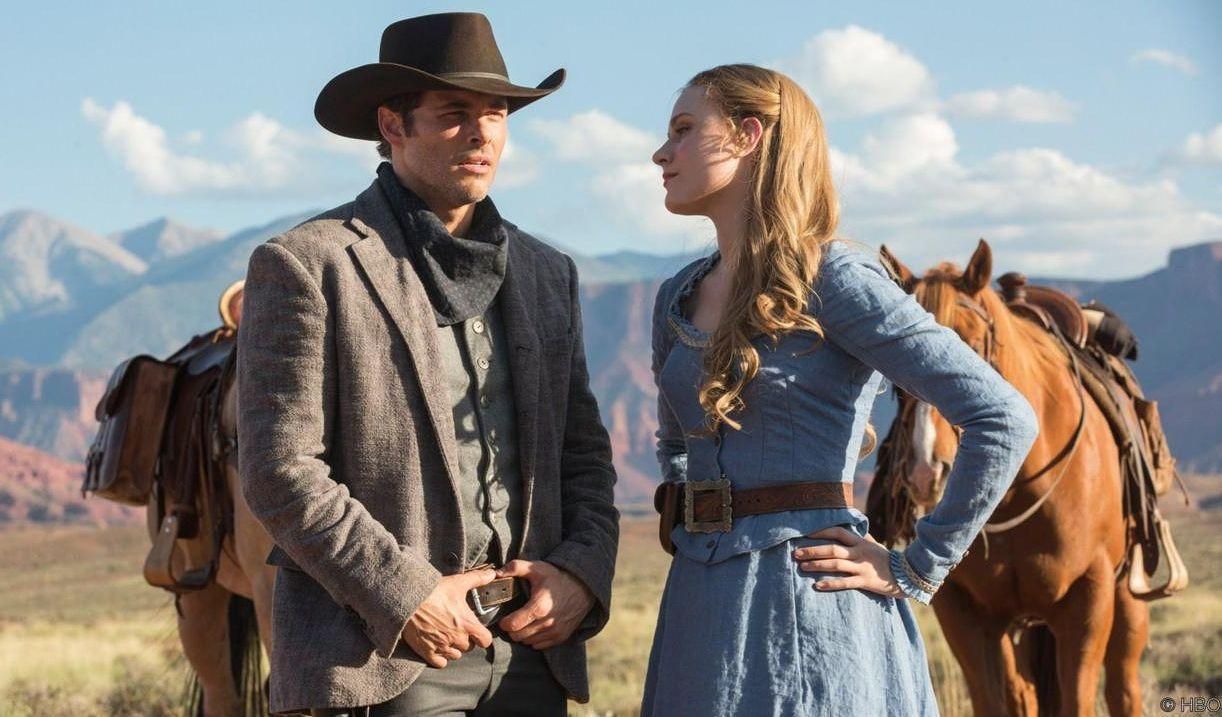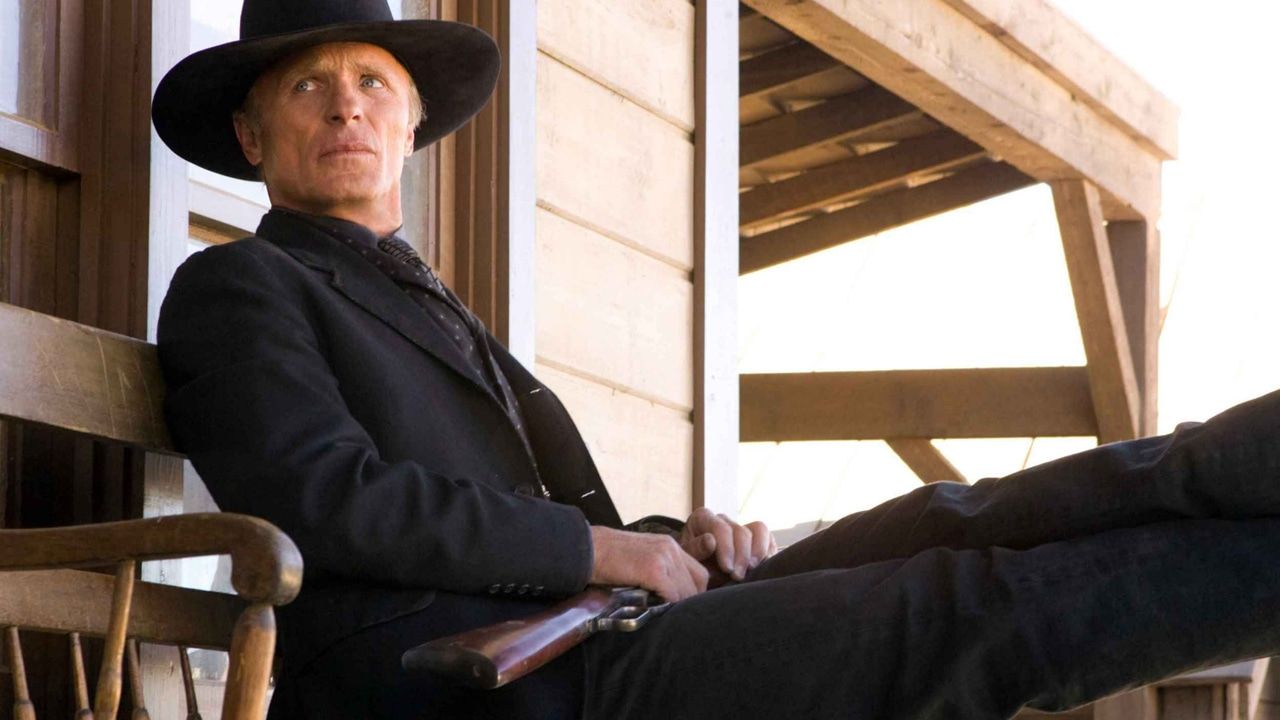“Westworld,” the 1973 sci-fi film conceived by novelist Michael Crichton that marked his directorial debut, is often regarded a high-concept precursor to his later work, “Jurassic Park,” in which a high-tech amusement park descends into chaos when its primary attractions – in this case automated denizens of an idealized Old West, rather than T-Rexes and velociraptors – turn on the attendees.
But upon closer examination, the film also laid considerably fertile ground to explore the existential, philosophical and practical questions and concerns regarding human beings’ relationship with their A.I. creations. Those questions now pose the foundation for a new incarnation of “Westworld,” HBO’s sumptuously produced, trenchantly presented series version of Crichton’s increasingly all-too-relevant conception.
As it turns out, it was a re-imagining long in the making. “It starts with J.J. Abrams, who I've been collaborating with going on six years now,” recalls Jonathan Nolan, the screenwriter behind many of the the films of his filmmaker brother Christopher Nolan, including “The Dark Knight” and “Interstellar.” Nolan is also the creator of the TV series “Person of Interest,” which Abrams executive produced, and focused on the intersections between technology, privacy and justice.
“J.J. actually sat down with Michael Crichton two decades ago. Crichton wanted to talk to him about remaking the original film, and J.J. couldn't crack it at that point. And, in fact, neither could the rest of the town – couldn't figure out how to quite figure out how to remake the movie. Yul Brynner's performance, in particular, is so iconic with that role.”
“Fast‑forward two decades later: it occurs to J.J. that it's not a movie,” continues Nolan. “It's a series, and a key aspect of that is this idea that you take the narrative and you invert it, and you make it about the hosts.” Serving as executive producer on the new series, Abrams then reached out to Nolan and his wife and creative partner Lisa Joy, whose writing credits include “Burn Notice” and “Pushing Daisies.” “For us, it felt like an opportunity to play with all the questions that we were most excited about, what's happening right now. This is a show that has so many fascinating things that we love to dive into, so we couldn't possibly turn it down.”
Joy says she and Nolan were particularly intrigued by the existential questions posed by the advancement of artificial intelligence depicted in the premise’s bigger picture. “It's questioning where does life begin, in essence,” she says, “and what characterizes the importance of life – whether it is a human who is dictated by biological impulses and neuron synapsing and the double helixes of DNA entwined within our bodies or whether it's an artificial being that's coded with zeroes and ones, but that is coded in such a way that this AI believes in its reality, feels the things it feels and feels them and as truly as we feel our own feelings. So it's the constant examination about that line and where does consciousness begin and end, and what are the differences between an AI and organic human.”
By flipping the script of the original setup, the couple was able to launch the series by focusing directly on the automatons that serve as Westworld’s compliant “hosts” and their awakening sense of individual consciousness and follow the ripple effects the result.
“We're able to explore different points of view with the show, says Nolan. “We wanted to start with and ground most of the information that the audience has in the hosts' perspective. So when it comes to these questions, we tease a little bit along the way, but we really wanted to strand the viewers in that limited understanding of where this place is. We very much want the viewers to be asking those [same] questions.”
“Every perspective of human beings – and this is the delicious part of the premise – who have been invited or made their way into a space in which they've been told that they have free rein,” Nolan continues. “They can take their id on vacation. They can indulge in any whim, no matter how noble or dark that they want, and, apparently, without consequence. And so that's a fascinating premise, as well: Who are we when the lights are off? Who are we when we don't think anyone's keeping score? And then in between these worlds, you have the programmers, writers, technicians, the Promethean characters who are responsible for mediating those two worlds.”
At the center of the increasingly self-aware hosts is Dolores Abernathy (played by Evan Rachel Wood), a beautiful, sweet-natured woman living with her family in the Old West town who has a knack for alternately bringing out the guests’ best and worst impulses. “We made a very conscious choice to start this series through the point of view of Dolores,” says Joy, “so that we could fully be with her in believing the reality of the West, the love that she feels, the familial connections that she had. And after establishing that empathy, we start to broaden the world, not only examining the lives and perspectives of the guests who come into the park, but also the technicians who work within the park below the ground.”
For their part, the members of the cast playing hosts embraced the unique challenge of portraying beings who are emerging as something other than man or machine. “I tried to really learn about the actual technologies that we're working on in the inner workings of AI, because now that's my hard drive: that's my brain; that's my thought process,” says Wood. “We settled on this place of subtlety, and those were the things that made the differences between the hosts and the humans very unsettling, because you can't really tell them apart until there's just one slight little movement, or shift, or freeze, that just throws you off completely. And those are the moments in the show that made me slightly scared, but really fun to do.”
“We call them just ‘Acting Olympics,’ because you're having to shift between a panic attack, into a complete freeze, into character accent mode, into computer analysis mode in a span of about 30 seconds, sometimes,” Wood explains. “Figuring out how to do that, and that intense focus that it took, was real fun.”
“Every time I played the character, it was like a meditation,” adds Thandie Newton, who plays Maeve Millay, the savvy host who serves as the madame of Westworld’s bordello. “I felt more perfectly, beautifully human, exquisitely human than I've ever felt, just by nature ‑‑ the simplicity and how definite these characters had to be, and that was very interesting. “
“Of course the show throws up so many existential questions about the nature of being human – do these hosts actually end up reflecting us more perfectly than we are?” Newton continues. “So the engineering and the physicality of our characters was hugely important, and we had to start with simplicity because it's going to go on a journey.”
The “guests” are equally complex, and in many ways more enigmatic – none more so than the black-clad Gunslinger, played by Ed Harris, a sly human reversal on Brynner’s Man in Black from the original 1973 film, and equally relentless in his as-yet-unrevealed aims.
“He has been coming here for 30 years,” says Harris, offering a slight peek at his role’s backstory. ”When he first came, he was not the “Man in Black.” This is a character that he has assumed and developed over many years that he has been coming to this place. And I think initially when he first arrived, he was just really exploring what this place was like, ‘Okay – I can do anything I want? I can kill people if I need to, or make love to strange robotic prostitutes.’”
“And I think something happened to him at some point,” Harris continues, “where this part of him that is very dark, very violent – all of the sudden he recognized that this was a real part of him that he had never really lived with in his life outside, and had obviously repressed in civil society for many years, and realizes ‘This is a part of myself that I really should check out, and see where this takes me.’ But there's also much deeper purpose for him being there by this point. He thinks there's some deeper level to what's happening in this park.”
After studying Crichton’s original work at length, Joy marvels at the prescience the author, who was also a physician, demonstrated. “Crichton is such a genius, that he was able to imagine these far‑flung events,” she says. “And nowadays, the idea of AI is not really science fiction anymore – it's just science fact. In Silicon Valley, they're working on creating artificial intelligence machines. It is something that is actively being undergone, an endeavor that's continuing today. And so we have the benefit of having a little more insight to what that scientific process would look like, and what the realities of it would be.”
“In looking at this series, our approach to the AI was a little bit more nuanced,” she explains, “in that now that we're looking practically at what it would be to having AI, you realize there's ‑‑ they are the product of our inputs, of the way which we design them. The good and the bad. They are in some ways a reflection of us. And beyond that, there is the possibility of human error: the fact that like any child, you do your best to rear them, but they can sometimes take on their own course. Their ‘code’ can develop in ways that we did not anticipate.”



